|
This week we hand our blog over to our most prolific author, Robert Cubitt. Disclaimer: The views expressed in this blog are those of the blog's author and are not necessarily those of Selfishgenie Publishing. 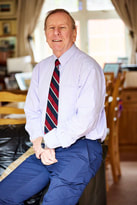 Author Robert Cubitt Author Robert Cubitt Authors get asked a lot of questions. Some of them sensible and others not so. Having been given the freedom of this blog I’d like to answer some of the sensible ones from my own perspective. One of the most common questions an author gets is “How did you get into writing?”. Well, it goes back all the way to my childhood. I loved reading. My local library, when I was about 13, would only allow me to take out one book at a time, but on at least one occasion I visited 3 times in one day because I read my single book so quickly. It was a 4 mile roundtrip and I had to walk, which says a lot about my reading addiction. It was only later that I worked out that it would have been a lot more efficient for me to sit in the library to read my book, which says a lot about my ability to think logically at the age of 13. 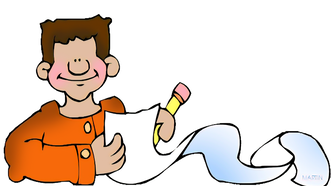 At the same time, I loved essay writing at school. “What I did on my holidays” (and other such topics) gave me the opportunity to create all sorts of adventures. I was once punished for writing a less than true account of whatever the teacher had asked us to write about that day and my mother went to the school and protested on the grounds that they were stifling my creativity. The objective, she pointed out, was to produce a piece of well written work, not to provide evidence for use at a trial. My mother’s intervention made no difference. For future assignments I was warned not to stray from the truth. What I actually did was tone down the drama in my fiction to make it more believable. Perhaps my first lesson in plot creation! I made my first attempt to write an actual book when I was about 14. I had no idea what I was doing, of course. My characters were shallow, and the plot made no sense. But everything we do provides us with lessons and the lesson I learnt from that was that writing a novel wasn’t as easy as I had imagined. But it didn’t put me off writing. 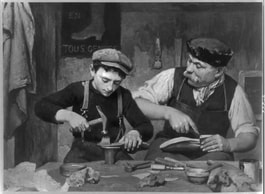 An apprenticeship in some arcane craft. An apprenticeship in some arcane craft. The school I went to when I was between the ages of 14 and 16 wasn’t the sort of school that produced writers. Pupils were expected to “learn a trade”. It was an all-boys school which meant apprenticeships in some arcane craft, motor mechanics, the building trade and so on. I assume that at the girls’ school across the road they were being taught to type, to cook and to raise babies. Our horizons weren’t even stretched as far as working in an office, at least, not without staying on for 6th form, which the families of most of the boys couldn’t afford for them to do. Regardless of academic ability. the vast majority left school at 16 to start earning a living so they could contribute financially at home. 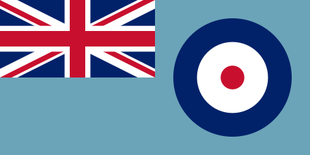 So that’s what I did. However, having been raised on the works of Captain W. E. Johns, author of the “Biggles” books, I decided to learn my trade in the RAF. But I didn’t stop writing. Almost every RAF station I served on had a station magazine and they were always looking for “content”, as we would call it today. I was happy to oblige them, though not everything I wrote was published. Apparently, parodying the domestic lives of the senior officers is frowned upon. Who knew? At the end of my 23 year stint, I suddenly found myself unemployed. I threw my efforts into finding a job, of course, but we were in a recession at the time and job hunting was an uphill struggle. To preserve my sanity in that dark time I decided to have another go at writing a book.  Learn from the best. Learn from the best. Having, to a certain extent, honed my skills in writing for magazines, what I produced was far better. I won’t go as far as to say it was good, as evidenced by the fact that I have never attempted to get the book published. But it was a start. It also served its purpose in keeping my mind occupied. More than that, it was a learning exercise. The most important lesson I learnt was that it is the characters who must take centre stage. A plot without good actors will never work. Instead of reading for pleasure, I started to read to learn how to write. Firstly, I read the books of successful novelists and analysed them to discover why they were so good. It always came down to the characters. The plots could be laughable in the way they were contrived, but having good characters, ones I came to care about, meant that the clunky plot was ignored, and I enjoyed what I was reading because of my emotional engagement with the characters. It was probably the most valuable lesson in writing I have ever learnt.  I eventually got another job and 17 years later switched jobs again. That final job was actually 20 hours of work squeezed into a 35 hour week, so I had a lot of time on my hands. I used the extra time to start writing again. I spent so much time writing that on one of my performance reviews my boss commented on how busy I always was, constantly beavering away. Little did he know! (BTW, I always did my real job first and to the best of my ability and was commended for my achievements). But the writing spark had turned into a forest fire, and I wasn’t dishonest enough to keep allowing my employers to continue paying me to be writer, so I took early retirement and started writing full time. Here I am, 12 years later and with 31 books published (including non-fiction) and I’m still writing like there’s no tomorrow. 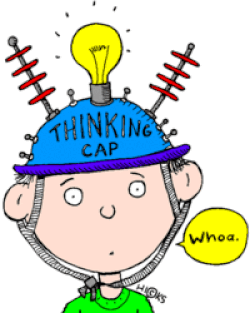 The next question I would like to answer is “where do you get your ideas from?” Well, they are all around us, all the time. Let’s start with world news. Every bulletin has the potential to produce ideas that can be turned into a book. All human life is there, in graphic detail. The politics, the hardship, the heartache, the trauma, the drama and blessedly, sometimes, the humour. Turn on the TV or radio news, pick up a printed newspaper or go onto the internet and there are myriad news stories just waiting to be fictionalised. Real authors can spot those and turn them into a full length novel.  History is a great source of ideas for stories. So many kings, queens, politicians, rogues, heroes, vagabonds, explorers, adventurers etc. Each has their own story and those can be borrowed and turned into fiction. I’m a great fan of this genre myself. Then there is everyday life. Some people call it “people watching”, but the world around us can provide the author with a thousand stories if they have the imagination. A young woman running for a bus, almost losing a shoe, can provide a hundred questions as to how she came to be there and what may become of her. If the author can imagine good answers, they can turn them into a book. Finally, there are our own “lived” experiences. Life rarely runs smoothly for anyone, and the speed bumps and car crashes all provide us with stories we can tell. In reality we do tell them, to friends and family, or maybe to our therapists. All an author does is write the same stories down and pad them out to a length that will make them a book rather than an anecdote. Of course, they have to be amplified to make them more dramatic/romantic/funny but that comes down, once again, to imagination.  What about sci-fi and fantasy? They don’t come from day to day life. Wrong. For the most part, sci-fi and fantasy novels are made up of the same plots as the stories we set on Earth. They just have bits added on to make them appear different. Star Wars, for example, is just the story of good vs evil transported to a galaxy far, far away. All the author does is to use their imagination to create worlds where the stories can be told, as they do with fantasy. “Luke, I am your father” is a trope that can be found in many an Earthbound story, as can the twins separated at birth. Shakespeare’s “Comedy Of Errors” and “Twelfth Night” both use the basic separated twins trope. The final question I want to answer is “Is it difficult to become a writer?”  If writing is ever this boring, you aren't a writer. If writing is ever this boring, you aren't a writer. My answer would be “no”. But there are many caveats to that. Anything you enjoy doing is never a chore. I enjoy writing, so I don’t find it difficult. If someone sits down and starts to write and they have become bored after a couple of thousand words, they will never become a writer. Not because they can’t write well, but because they clearly don’t enjoy writing. The more you study and practice a subject, the easier it gets. That is what I have done as a writer. But I find chess hard. Chess Grandmasters will tell you that playing chess is easy and for them it is. Because they have practiced for thousands of hours playing hundreds of thousands of games to get to where they are. Of course it’s easy for them. I play one game every ten years, so for me it’s always going to be hard. So it is with writing. The more you learn and the more you practice what you have learnt, the easier it gets. If your idea of writing is doing the weekly shopping list, you will struggle if you start to write a book. 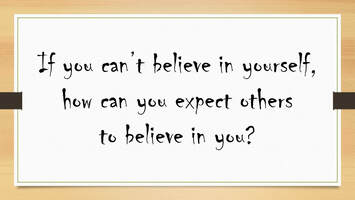 Finally, you have to believe you can write. Like many other creative professions, authors are plagued by insecurities. Imposter Syndrome stalks us like a hungry tiger. It sucks all the enjoyment out of writing which, as previously mentioned, is an essential part of being a writer. Overcoming that barrier of lack of self-belief has curtailed many a potentially successful writing career. So, when the whispers of self-doubt start to be heard in your brain, you have to shout back very loudly “I am a writer!” I shout it out loud, which is very disturbing for my wife. But if I didn’t, I would have given up 31 books ago. So don’t give up. Most authors take years to become an overnight success. Some never will become a success, but that doesn’t spoil their enjoyment of writing. To find out more about my books, see the "Books" page of this website. If you have enjoyed this blog, or found it informative, then make sure you don’t miss future editions. Just click on the button below to sign up for our newsletter. We’ll even send you a free ebook for doing so.
0 Comments
Leave a Reply. |
AuthorThis blog is compiled and curated by the Selfishgenie publishing team. Archives
June 2025
|
 RSS Feed
RSS Feed